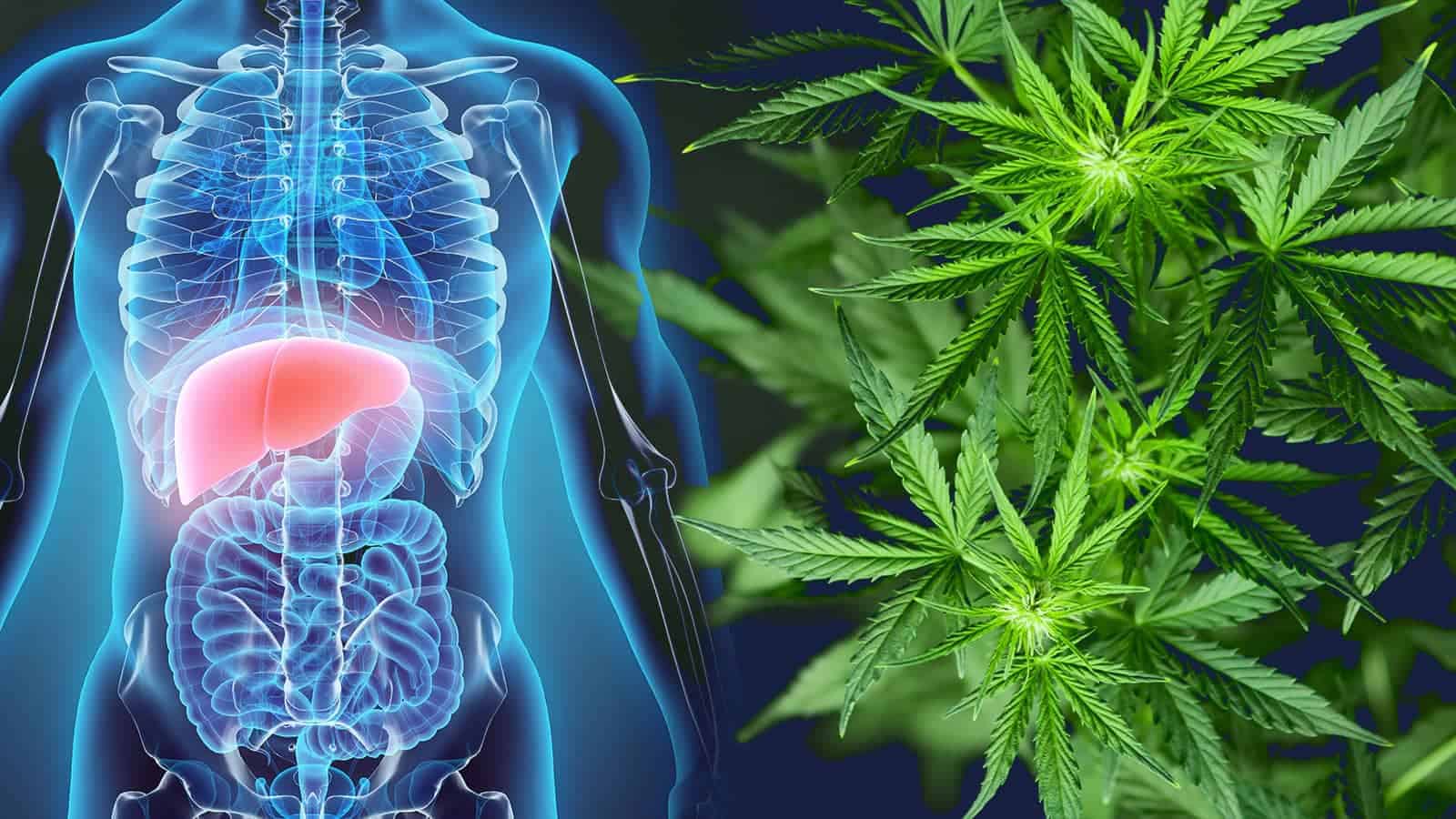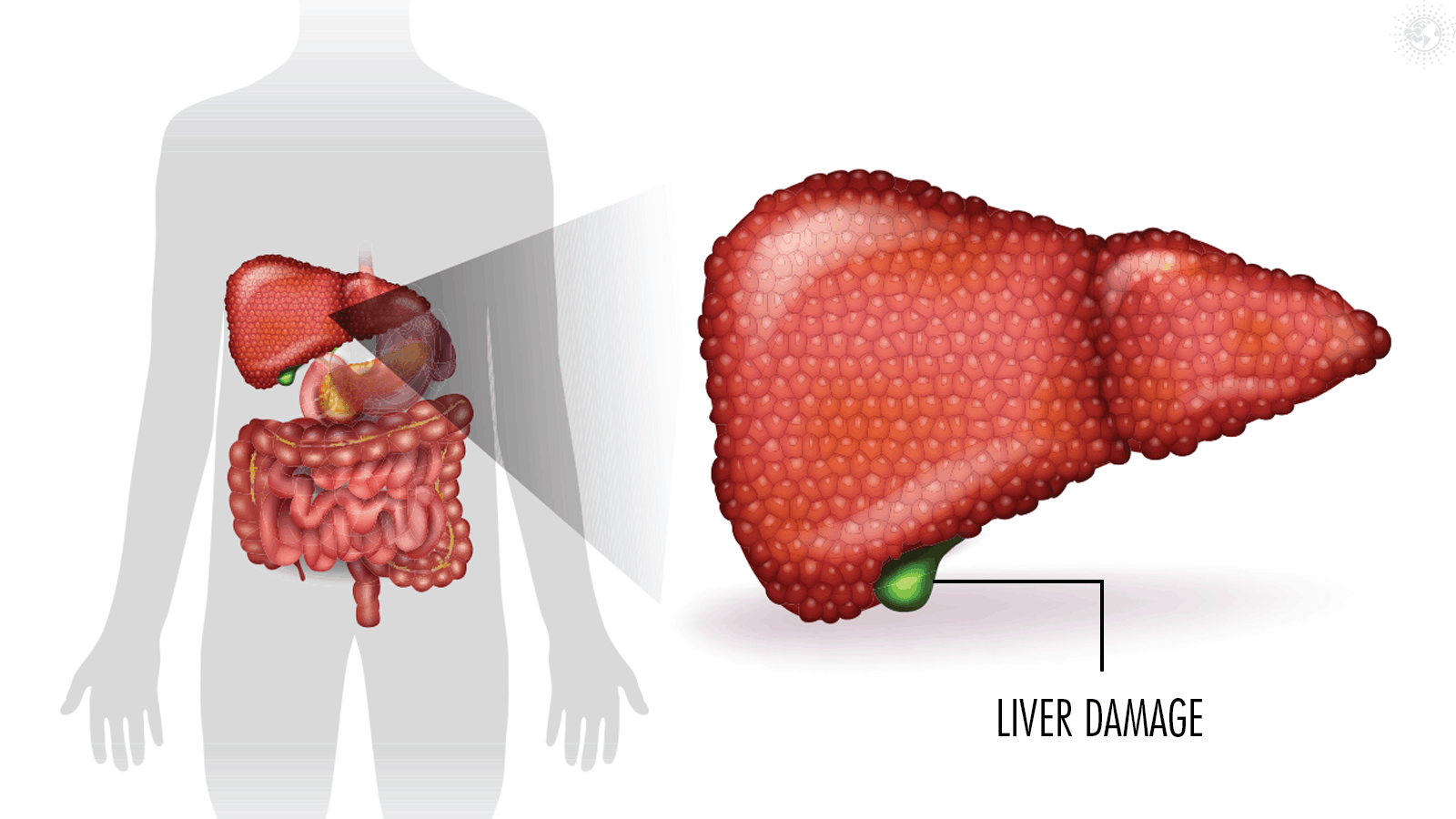As of March 2019, 15 states plus the District of Columbia have maintained laws to keep marijuana illegal. The rest have legalized marijuana for mostly medical use, but some states allow recreational use. Marijuana has several “claims to fame” for its medical use. This includes use as pain treatment, for seizures, and for nausea related to chemotherapy and radiation. Many of its other reported medical uses are still being studied.
One use that medical professionals and scientists are still studying is how marijuana can prevent liver damage from excessive alcohol use, otherwise known as alcoholic hepatitis.
What is Alcoholic Hepatitis?
Alcoholic hepatitis is a liver infection primarily caused by repeated heavy use of alcohol. It creates a buildup of fat in the liver cells which then leads to inflammation and scarring of the liver. This scarring is called cirrhosis. The results can be fatal and can lead to needing a liver transplant, which requires one to abstain from alcohol entirely.
Our liver is designed to convert food and drink into nutrients that our body can then use. As a part of this process, the liver filters poisons and other harmful substances from the blood. When we consume too much alcohol at one time, we create a strain on the liver. If we consume a lot of alcohol on a regular or daily basis, it is too much for our liver to handle. Alcohol can damage and destroy liver cells, weakening the liver and causing damage to the organ.
Our liver can only filter one alcoholic drink per hour. More drinks consumed within that time only increases the amount of time it takes for the liver to filter it. The excess of alcohol then circulates into the bloodstream. That process is responsible for the effects we feel when we are drunk or intoxicated. The word “intoxicated” literally means we have toxins in our body which are creating effects on our nervous system, heart, and brain.
Symptoms of Liver Damage
Twenty percent of all heavy drinkers develop some form of liver disease. The safe amount of alcohol for a person to drink is considered one drink for women or two for men a day. Regular increased amounts raise your chances for liver disease. It is important to add that liver disease is not only caused by alcohol, but can also be caused by genetics, obesity, medications, poisons, and viruses. This form of liver disease is referred to as non-alcoholic fatty liver disease.
The symptoms of liver disease are:
- Yellowing of the skin and eyes, otherwise known as jaundice
- Abdominal pain
- Swelling in the legs
- Dark urine
- Nausea or vomiting
- Discolored stool
- Unusual bruising
- Fatigue or fluctuating energy levels
- Acid reflux
- Bad reactions to medications like antibiotics and pain killers
- Skin conditions, such as eczema, psoriasis, and overall itchiness.
The good news is that liver damage doesn’t have to be fatal or even require a liver transplant. The liver can repair itself if you stop drinking before the point of cirrhosis.
The Marijuana and Alcohol-related Liver Disease Connection
A study was published on January 17, 2018, by several scientists; they analyzed the 2014 Healthcare Cost and Utilization Project-Nationwide inpatient small discharge record of patients 18 years and older. These patients had a past or current background of abusive alcohol use. They studied four different stages of progressive liver disease in conjunction with 1) non-cannabis users, which made up about 90.3% of the study population; 2) non-dependent cannabis users, which comprised 8.26% of the populace; and 3) dependent cannabis users, making up 1.36% of the study.
Dependence indicates a state of physical dependence on a substance; subjects demonstrate tolerance toward the use of the substance and withdrawal symptoms upon not using it regularly. Marijuana is not viewed as an addictive substance, but a dependent substance.
The results showed that cannabis users, dependent or non-dependent, showed far lower odds in developing the four progressions of liver disease. Dependent users had even lower odds when compared to non-dependent users.
Interestingly enough, a similar study was performed for non-alcoholic fatty liver disease and it was determined that a strong relationship exists between cannabis use and reduction of liver disease. Results showed that the prevalence of NAFLD was 15% lower in non-dependent users and 52% lower in dependent users.
Receptors that Help Combat Liver Disease
Another study published back in 2005 states that endocannabinoids in cannabis positively affect the liver. Endocannabinoids are compounds that bind to the same receptors as tetrahydrocannabinol (THC), which is the active ingredient in hashish and marijuana. These receptors are the same as the ones in our brain and peripheral tissues, including our liver. The study concludes with this: “Endocannabinoids appear to be involved in several aspects of acute and chronic liver disease, including vascular changes, modulation of the inflammatory process and neurological function.”
A later study published in Jan 2011 essentially states that there are two different types of receptors: 1) CB1, recognized as the most common receptor in the brain, as well as in peripheral tissue, including various cell types of the liver, albeit at a lower level; and 2) CB2 receptors, expressed primarily in the immune and hematopoietic cells as well as in the liver cells. The study concludes that CB1 activity contributes to the abnormalities and fibrosis in liver cirrhosis. Therefore, if we activate CB1 antagonist, then we can slow or delay the process of liver disease.
The concern of using cannabis as that antagonist is the neuropsychiatric side effects which can limit the therapeutic effects on the brain. Yet, there have been more discoveries of non-psychoactive CB2 agonists which may offer benefits to the liver, including tissue repair. Essentially, since cannabis has the same receptor properties as CB1 receptors, its use can help the body combat liver disease.
Thus far, all studies emphasize the importance of more research to further explore the role cannabis use could play in the treatment of liver disease. Also, further research may help to determine how it creates this decrease in progression.
Advice to Use Marijuana with Caution
While the studies above show promise for liver disease, doctors advise caution in the use of marijuana.
Norah Terrault, MPH, MD, the director of the Viral Hepatitis Center at the University of California in San Francisco, spoke about marijuana use while at the 2018 American Association for the Study of Liver Diseases in November of 2018.
She states that due to the recent legalization of medical and recreational use of marijuana, she has more and more patients who inquire about its use in their treatment. She warns that there are about 60 different cannabis products from THC, CBD, and others.
Terrault advises her patients that the studies related to liver disease are still fairly new. There remain a lot of unknowns. She personally treats it as an herbal supplement. Why an herbal supplement? Her view is that it is not known how pure a product actually is – whether it is herbal or cannabis. Often, additives are present which can change its effectiveness. Additionally, we are still not certain regarding the pros and cons of cannabis use for treatment on liver disease.
In regards to a virus-induced liver disease, she states: “There is some data in the hepatitis C virus arena. [That area] is probably where there actually are some human studies and publications. For individuals who have hepatitis C viral infection who are using daily cannabis, we have prior studies that suggest those individuals were at higher risk of fibrosis progression, and there are some animal data to support that.”
Final Thoughts and Advice
She continues to state: “We know that when the liver develops fibrosis, there is expression of CB1, CB2 receptors, and so the cannabinoid receptors are expressed on fibrotic tissue. Some of them are profibrogenic, and some of them are antifibrogenic, and depending on the cannabinoid product, those receptors could be affected differently. In a given individual with this variable product that we have of marijuana, it may actually be a potential risk for a profibrogenic effect, and so you could have accelerations.”
Currently, she is advising her patients who wish to try it (in states where it is legal to do so), but to not use cannabis on a daily basis. She does emphasize that results are still unknown and it is her preference to not use it at this time for any serious treatment.
The study of marijuana preventing liver damage from alcohol, or non-alcohol use, interests scientists and doctors alike. Thus far, it shows great promise. As a new discovery, it will take years to understand its long-term benefits or disadvantages.
If you do use cannabis to treat liver damage from alcohol, make sure to talk to your doctor first. As a final caution, smoking it is counterproductive, since inhaling smoke from any plant material causes damage to the lungs. If you can find it in tea, powder, or tincture form, that would be considered a superior treatment method.


















